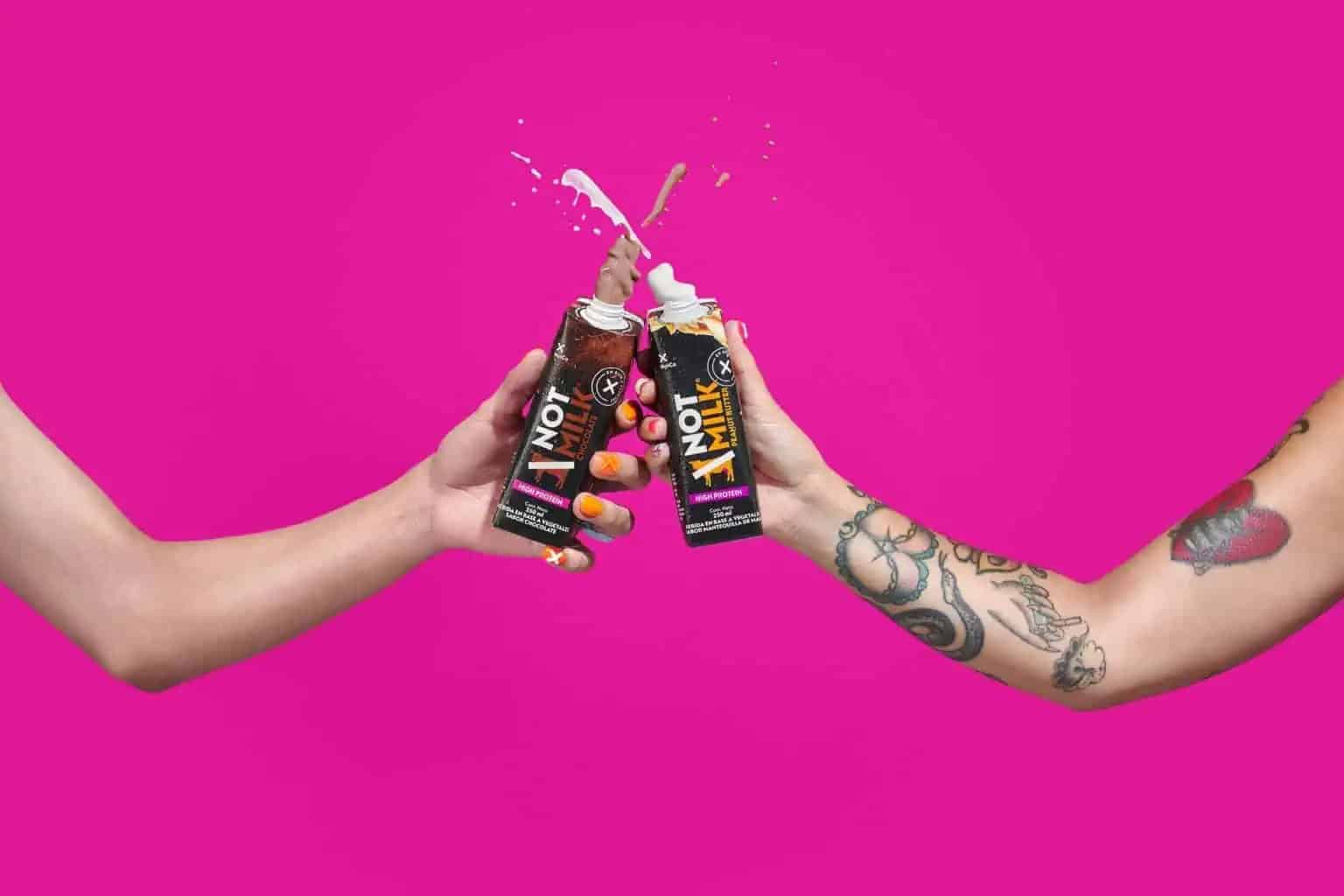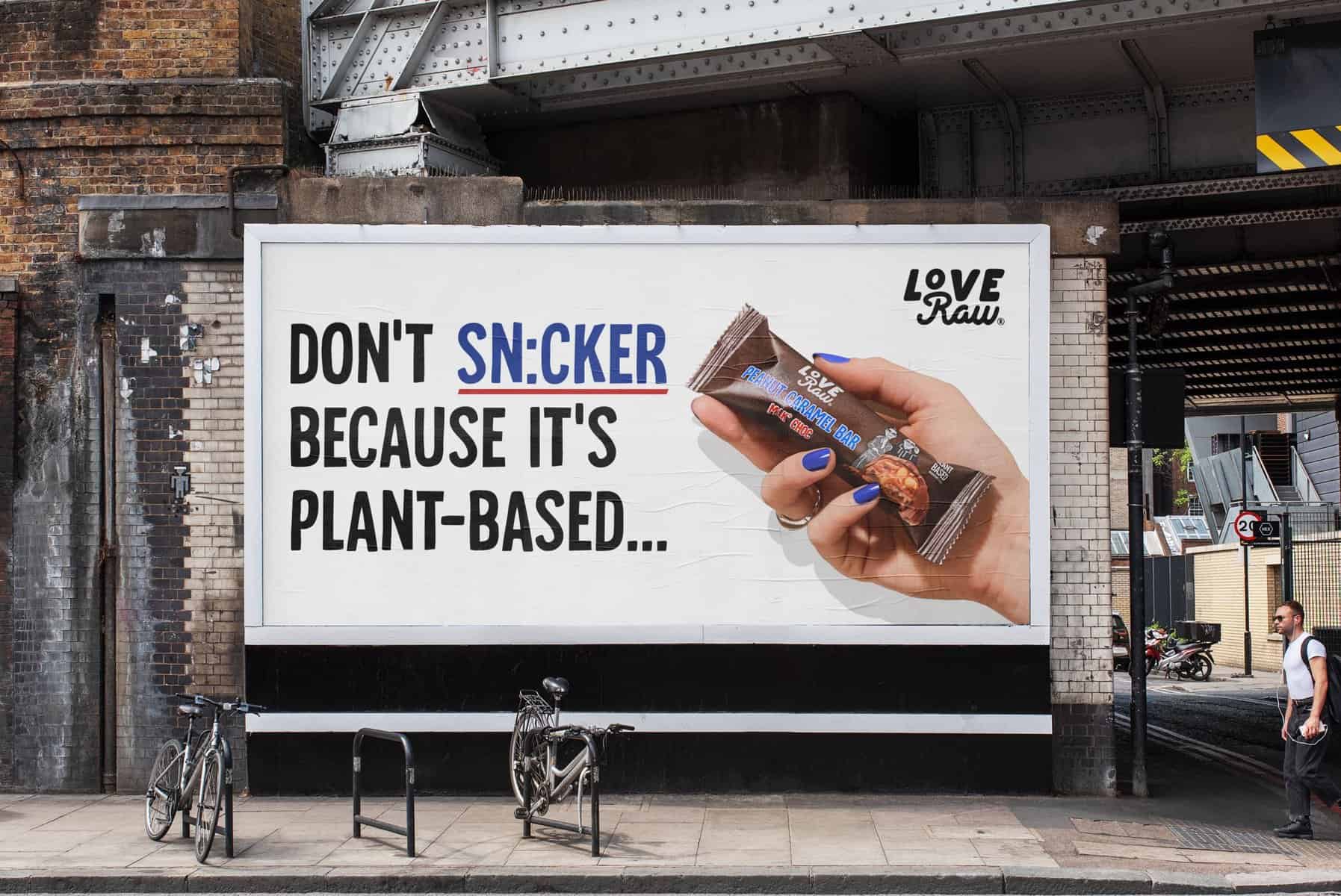Investigative reporting from The Times and Greenpeace has revealed that new UK Trading Standard guidelines could ban the use of dairy-like terms when marketing plant-based alternatives. We spoke with the founder of industry leader allplants and the co-founder of food industry comms firm Palm PR, for a food industry perspective and public relations advice around this complicated issue.
If the draft guidelines are put into force, then “obvious misspelling, homophonic words or [the] inserting [of] non-alphabet symbols” to refer to legally protected dairy terms would be prohibited.
This could affect all vegan dairy products, and could see brands banned from labelling their products as “mylk”, “m*lk”, “vegan cheese”, “plant-based yoghurt”, or “cheddar-type”, along with a host of other descriptors that have historically been allowed.
The modern consumer is savvy
Jonathan Petrides, founder and CEO of allplants, market leader in the UK for vegan ready meals, commented on the proposed legislation.

“One of the biggest investments we can make towards safeguarding our planet is by eating less meat and dairy products, which raises the question; why isn’t the government doing more to encourage this shift?” he said.
“Introducing legislation with the intention of protecting consumers against confusion over choosing a dairy alternative is not only unnecessary, but it’s the opposite of what should be happening. Government should be passing legislation to empower and enable consumers to choose lower-carbon food alternatives, not the other way around.
“If the government really thinks it’s necessary to introduce legislation to avoid confusion, should we also be renaming electric cars? How about coconut milk, or peanut butter? The modern consumer is savvy, and what they want is transparency and information to help them make climate-friendly decisions; research from IPSOS shows 75% of Europeans want labels to see the climate impact of their food.”
Seven tips for food brands
Palm PR has implemented campaigns for alt dairy brands such as CO YO, Plenish, Rebel Kitchen, Nutty Bruce, Nush, and Freaks of Nature. Here, co-founder Liam Keogh offers seven tips for companies that could be affected by the new guidelines.

1. Master the guidelines
First of all, master the guidelines. As soon as the official details are published understand how they will impact your brand, your products, your marketing strategy, your packaging and, crucially, when. The Times has reported that “Names such as ‘mozzarella alternative’ would not be allowed, but language on packaging such as ‘use as an alternative to mozzarella’ would be.” Establish what you can and can’t do and when changes need to be made, using this information to shape your strategy and response.
2. Equity & name recognition
Invest in building equity and name-recognition in your brand and establish it as a category leader. These changes will naturally favour the market’s biggest players. For example, consumers will have no problem in asking for “a glass of Oatly” instead “a glass of oat milk”, in the same way that people talk of “Googling” instead of “using a search engine”.
“you’ll need to make your brand as well-known as possible”
To make sure your business isn’t left behind, you’ll need to make your brand as well-known as possible and associated with the category as a whole so that consumers can still pick out your wares if product labelling changes.

3. Press & influencers
If you can’t use your packaging and the brand’s owned marketing to communicate the message you want, then using third parties will be crucial. Press and influencer campaigns will be essential as the media won’t be constrained by trading standard guidelines and will be free to deliver messages direct to consumers that brands are no longer able to themselves.
4. Positioning
Campaigns that educate the market will be a powerful way to build consumer understanding. Activations that showcase or own usage occasions will enable brands to show that their ranges are an alternative to traditional dairy products if their labelling isn’t able to. This can be supported by clever brand collaborations. If you have a dairy-free milk, then strategic partnerships with like-minded cereal or coffee brands can achieve the positioning that you want.

5. Work with your retailer
Work with your retailer to establish the best place to place your product. If these guidelines don’t enable you to draw the connection between your product and the traditional dairy variety, then placing the products side by side might be just as effective.
6. Make a noise
Proactively challenge the guidelines. Make noise on social media and implement PR campaigns to get your voice heard in opinion pieces, TV shows, and podcasts, and use your customer base as an advocate for your position. Get political, join forces with other brands, and speak to your MP and DEFRA to make sure your voice is counted in the debate.

7. Harness creativity
Finally, if you have to, harness creativity to develop alternative ways to describe your products. Consider terminology that resonates with your customer base whilst emphasising the nutritional benefits, plant-based nature and unique selling points of your range. The plant-based industry has been adept at forging new categories and has an opportunity to ‘own’ these changes by forging language that enables brands to control their positioning and consumer perception of their products.





